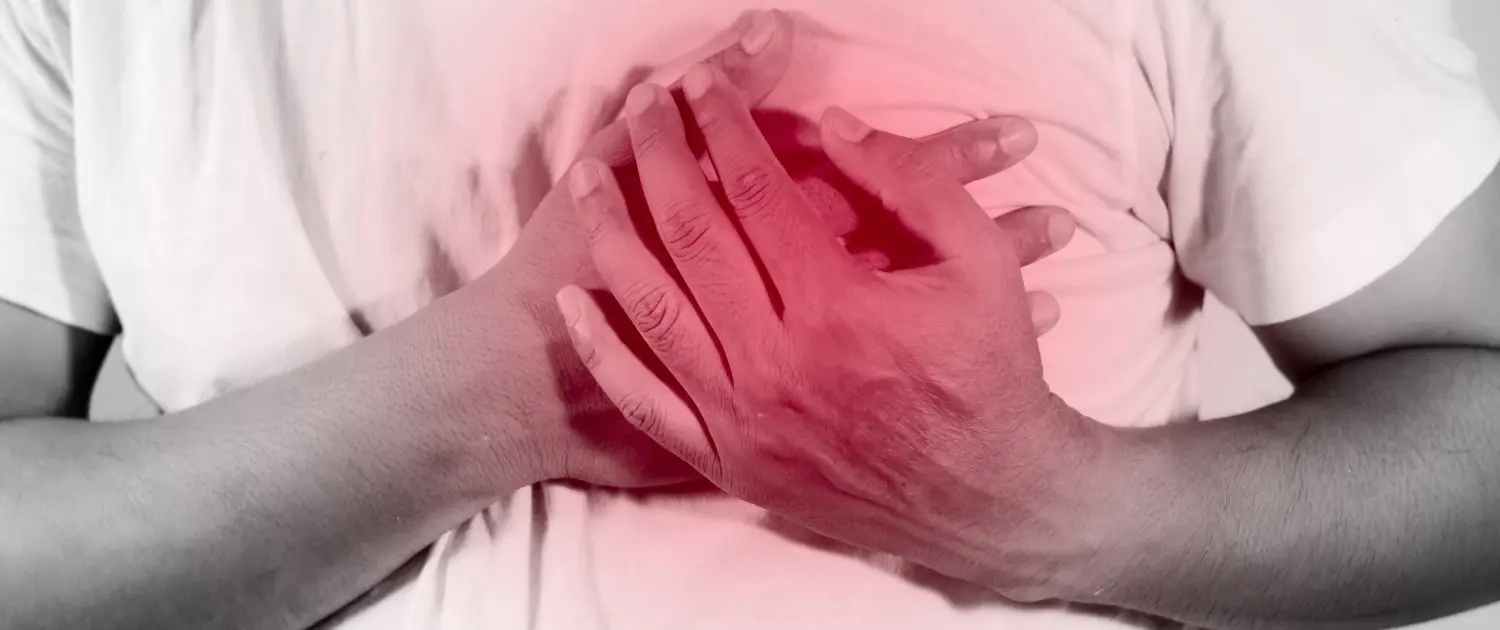How Does Gas Trapping Pass?
Gas compression can be caused by gas accumulating in the stomach and intestines. This can cause discomfort for people. For this reason, the question “How to relieve gas in the stomach?” is often asked. There are several different ways to prevent gas entrapment. Gentle exercise, drinking plenty of water and avoiding gas-forming foods can also help. This can also occur in infants, children and pregnant women.What is Gas Trapping?
Gas trapping is a condition that occurs as a result of a disruption in the normal functioning of the digestive system. This condition usually occurs when gas builds up in the intestines to a greater extent than normal. Symptoms of gas compression can include bloating, pain, discomfort and rumbling in the abdomen. This can often be caused by swallowing air, slow digestion, overconsumption of fibrous foods or certain health problems. A few simple measures can be taken to deal with a gas jam. It may be helpful to adopt slow eating habits by chewing food, avoiding gas-forming foods and exercising regularly.What are the Symptoms of Gas Trapping?
The accumulation of gas in the digestive tract can cause discomfort and recognizing the symptoms of gas trapping is important to address the problem. Common symptoms of flatulence include bloating, abdominal pain and a general feeling of discomfort in the abdomen. Individuals show symptoms of gas compression in the stomach. Swelling in the abdomen and rumbling or rumbling in the stomach also indicate problems with gas. Gas compression can cause chest pain and this can often be mistaken for a heart attack.What Causes Gas Trapping?
Gas tightness can be caused by a number of conditions occurring in the digestive tract and often causes uncomfortable symptoms. When asked , “Why does gas trapping happen?“, it can be seen that there are many different causes. The main reasons for this may include the following:- Slow Digestion: The inability of the digestive system to process food adequately can lead to gas accumulation. Slow digestion can make it harder for the body to break down food and absorb nutrients.
- Air Swallowing Air swallowing habits, especially when eating fast food or consuming carbonated drinks, can lead to the accumulation of extra air in the stomach and intestines, and gas trapped in the stomach can cause discomfort.
- Gas Forming Foods: Excessive consumption of fibrous and gas-forming foods such as broccoli, beans and cabbage can cause increased gas formation in the digestive tract.
- Lactose Intolerance: Dairy products are difficult for some people to digest, so indigestible dairy products can lead to flatulence.
- Bowel Movement Disorders: Movement disorders in the intestines can cause gas to move more slowly than usual or accumulate.
What Are the Foods That Cause Abdominal Gas Congestion?
Gas compression can occur due to the effects of certain foods on the digestive system. Consuming these foods can often lead to increased gas production and uncomfortable symptoms. Individuals who constantly consume these foods are looking for answers to the questions “What causes constant gas compression?“. Here are some foods that can cause flatulence:- Fibrous Foods: Fibrous vegetables such as broccoli, cabbage, cauliflower can ferment in the digestive tract and cause gas accumulation.
- Beans and lentils: Some grains can cause gas due to their high fiber content.
- Onions and garlic: These aromatic vegetables can cause gas accumulation in the digestive tract due to their sulfur compounds.
- Lactose-Containing Foods: Dairy intolerances can cause flatulence in people with intolerance to dairy products.
- Carbonated Drinks: Carbonated drinks can cause gas trapped in the stomach and intestines .
How to Eliminate Gas Trapping?
Gas compression is an uncomfortable condition caused by gas accumulating in the digestive tract. This can occur as a result of gas trapped in the stomach or gas trapped in the intestines. Abdominal massage, teas, walking can help relieve it.How to Eliminate Gas Tightness in Babies?
“How does flatulence go away?” in babies is quite common, but it can be worrying for parents. The following methods can be used to relieve gas compression in babies:- Abdominal Massage: Gentle circular movements to the left side can relieve pain in babies by helping to release gas.
- Bicycle Movement: Moving the baby’s legs like a bicycle pedal can help gas pass through the intestines.
- Relaxing Bath A warm bath can help the baby to relax and relieve gas.
- Breastfeeding and Bottle Feeding: It is important to ensure the correct positioning so that the baby does not swallow air when using a bottle.
- Carminative Massage Oils: Using carminative massage oils specially formulated for baby massage can help relieve gas compression.
How to relieve gas in children?
There can be various causes of flatulence in children. The following can be done to relieve flatulence in children:- Light Exercise: Light exercises can help. Activities such as walking or cycling can be useful.
- Fruits and vegetables: Fibrous foods can reduce gas formation. Excessive consumption should be avoided. Excessive consumption can cause diarrhea by accelerating bowel movements. In this case “What is good for diarrhea?” question should be investigated.
- Fluid Consumption: Drinking plenty of water keeps the child hydrated and can support the digestive system. Liquids can help gas to pass more easily.
- Massage: Gently massaging the child’s abdomen can contribute to the release of gas. However, it is important to apply the massage carefully and gently.
- Warm Application: Applying a warm or warm application wrapped in a cloth to the abdomen can relieve gas compression.
 How to relieve gas in pregnancy (constipation during pregnancy)?
How to relieve gas in pregnancy (constipation during pregnancy)?
Flatulence and constipation are common problems during pregnancy due to hormonal changes and an expanding uterus. This is usually due to the effect of the hormone progesterone, which can cause gas in the large intestine, which can cause the intestines to work more slowly. The stomach can also be affected by gas compression. You can take the following measures to relieve constipation and flatulenceduring pregnancy:
- Fiber Foods: Adequate fiber intake can regulate the digestive system.
- Water Consumption: Drinking plenty of water can help soften the intestines. Drinking at least 8 glasses of water a day can help.
- Light Exercise: Walking can stimulate bowel movements and reduce constipation.
- Probiotic Foods: Foods containing probiotics, such as yogurt, can support gut health.
- Doctor Approved Laxatives: Using safe laxatives approved by your doctor can relieve constipation.
Frequently Asked Questions
This section addresses common questions about gas entrapment. Here you can find some information for this common situation in daily life.
Symptoms of Gas Trapped in the Liver
Symptoms of gas compression in the liver usually manifest as discomfort, bloating and pain in the abdomen. This can often be caused by a disruption in the normal functioning of the liver or problems affecting the intestinal tract. Symptoms of trapped gas in the liver can include stomach pain, bloating, stomach rumbling, loss of appetite and digestive problems. Like the liver, the pancreas can also experience gas compression . However, as these symptoms can often be associated with other health problems, it is important to consult a health professional for a definitive diagnosis.
Does Stress Cause Gas Trapping?
It is known that stress can cause gas compression. Stress and anxiety affect the body in many different ways. The digestive system can therefore be affected on stressful days. Slowed digestive system activity can cause gas formation in the intestines. Stressed individuals may change their eating habits and this can be triggered by consuming foods that can cause gas.
What are the Diseases Causing Gas Trapping?
Gas compression is a condition that can signal a number of problems with the digestive system. Conditions such as Irritable Bowel Syndrome (IBS), Crohn’s disease and ulcerative colitis called inflammatory bowel diseases (IBD), lactose intolerance, liver or pancreas diseases, digestive tract tumors and intestinal obstruction can cause gas compression. These diseases can cause discomfort by affecting the normal motility of the digestive tract and leading to gas accumulation. It is important to talk to a health professional if you are experiencing persistent flatulence .
Does Gas Trapping Make Constipation?
Yes, gas compression can cause constipation, often by affecting bowel movements. Constipation can also lead to gas accumulation, which can create a cycle. Therefore, measures such as a regular and balanced diet, adequate fluid intake, exercise and stress avoidance can alleviate both flatulence and constipation. In case of constipation, detailed information on “What is good for constipation?” can be obtained.
Where Does Constipation Pain Hit?
Constipation pain can often be felt in the lower abdomen and, if severe, in the lower back. Pain can vary from individual to individual. Some people experience extremely severe pain, while others may experience pain that interferes with their daily lives.
Gas trapping can be caused by many reasons. With simple measures, it is possible to prevent it and get rid of the discomfort that comes with it. Likewise, some diseases can also cause it. If you have this problem often, you can consult a health professional for more information.





